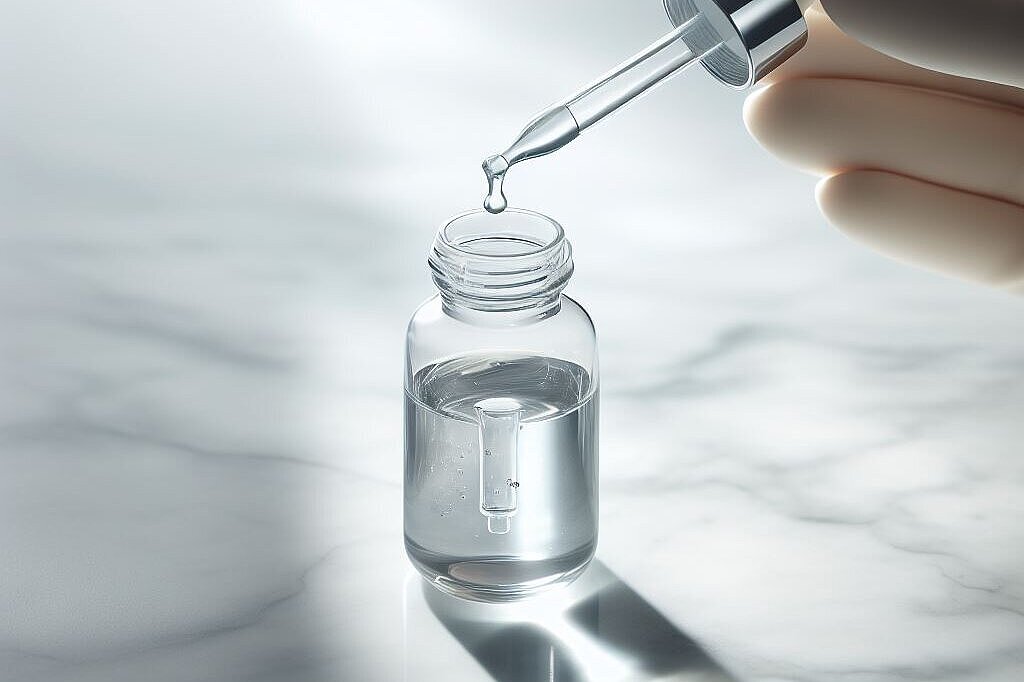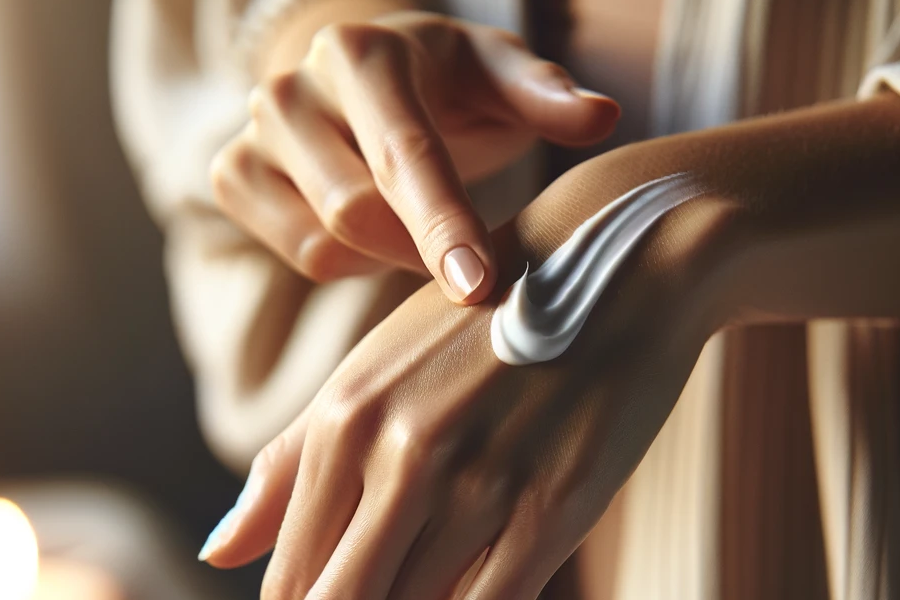Kojic acid

What is kojic acid?
Kojic acid is an organic compound that was first isolated by Japanese scientists in 1907 from various types of molds, particularly Aspergillus oryzae (known as koji, which is also used in the production of soy sauce and sake). It is known for its ability to inhibit melanin production in the skin, making it a popular ingredient in skin lightening and hyperpigmentation treatment products.
Areas of application for kojic acid
In human dermatology, kojic acid is used to treat various skin conditions such as melasma, age spots and sun damage. Its antioxidant properties also make it effective in the fight against free radicals that can lead to premature skin ageing.
Benefits of using kojic acid in dogs
Treatment of hyperpigmentation
Similar to humans, kojic acid could help treat dark spots and hyperpigmentation on your dog's skin. This can be particularly useful for dogs that are prone to pigmentation changes due to genetic predisposition, injury or skin disease.
Antioxidant effect
The antioxidant properties of kojic acid can help protect your dog's skin from environmental damage and delay the signs of ageing. This results in a healthier, more vibrant coat and more resilient skin.
Possible disadvantages and risks
Despite the potential benefits, there are concerns regarding the use of kojic acid in pet care.
Skin irritation
One of the most common disadvantages of kojic acid is its potential to cause skin irritation and sensitivity. Dogs with sensitive skin or existing skin conditions may be particularly susceptible to side effects.
Ingestion toxicity
The safety of kojic acid when ingested orally is another concern. As dogs tend to lick themselves, there is a risk that they may ingest residues of products containing kojic acid. The long-term effects of such ingestion are not fully known, but it could lead to gastrointestinal distress or other health problems.
Lack of specific research
Research on the use and safety of kojic acid in dogs is limited. While it is widely used in humans, the direct effects on dogs may vary and there is an urgent need for specific studies in this area.
Careful consideration required
Kojic acid may sound promising for treating certain skin conditions in dogs, but as with any medical or grooming intervention, caution is advised. The decision to use products containing kojic acid should not be taken lightly. It is important to consider your dog's specific needs and health conditions and seek professional advice if in doubt. Ultimately, the safety and welfare of your four-legged friend should always come first.
If you notice any signs of hypersensitivity or poisoning in your dog, you should see your vet immediately. We are not a substitute for a vet, but we try to be as accurate as possible. Every dog reacts differently and we recommend you get a second opinion or consult your vet if in doubt.
Stay healthy and take good care of your four-legged friend!😊
Similar to Kojic acid
Arbutin, also known as hydroquinone-β-D-glucopyranoside, is a glycoside that occurs naturally in many plants, including bearberry, cranberry, pear and wheat. It is often used in the cosmetics...
Vitamin C, also known as ascorbic acid, is a water-soluble vitamin that is found in many plant and animal foods. It is primarily known for its antioxidant effect, i.e. it intercepts free radicals...
Glycolic acid is an alpha hydroxy acid (AHA) that occurs naturally in sugar cane but can also be produced synthetically. It is known for its ability to dissolve dead skin cells from the surface of...
Hydroquinone is an organic compound mainly known for its skin lightening properties. In human dermatology, hydroquinone is used to treat pigmentation disorders such as age spots, freckles and...



